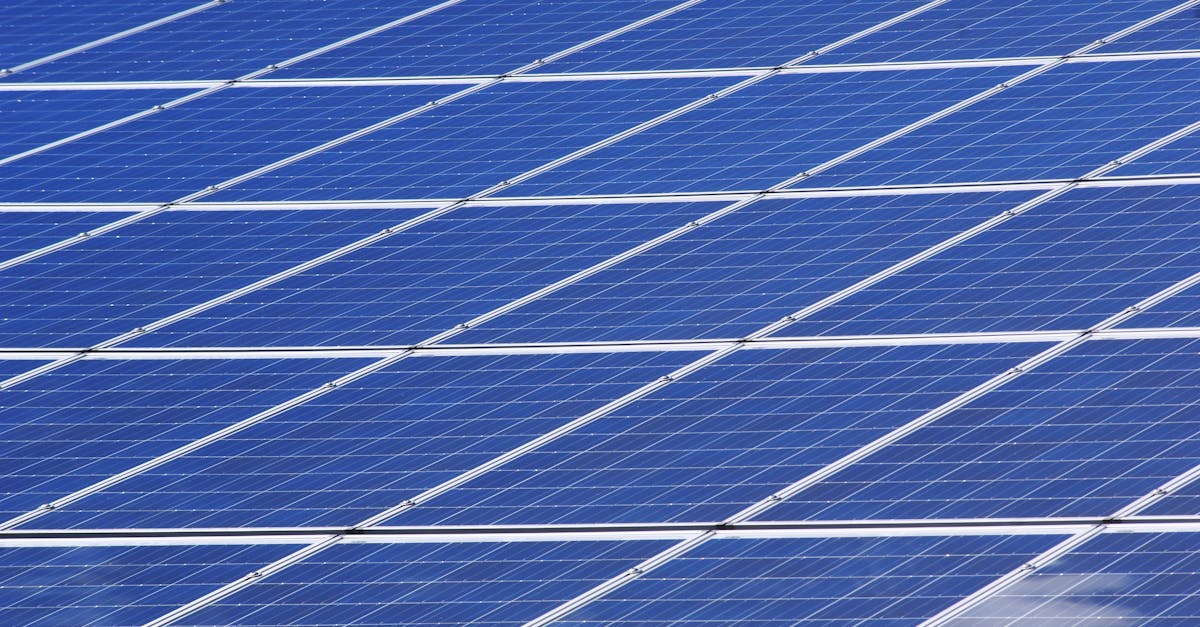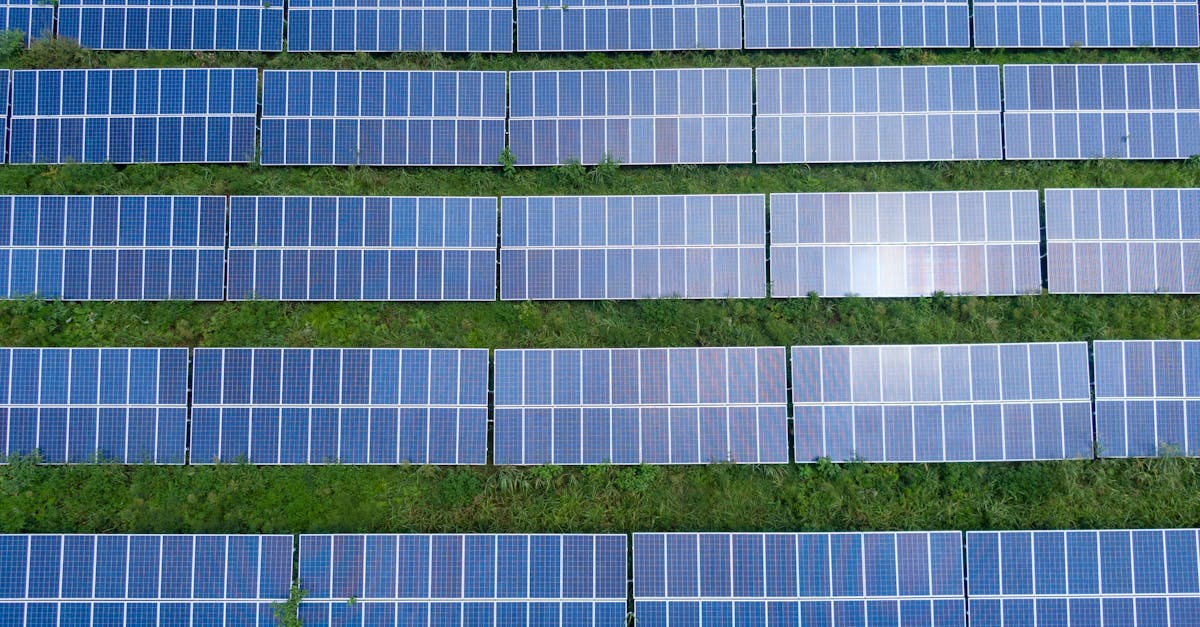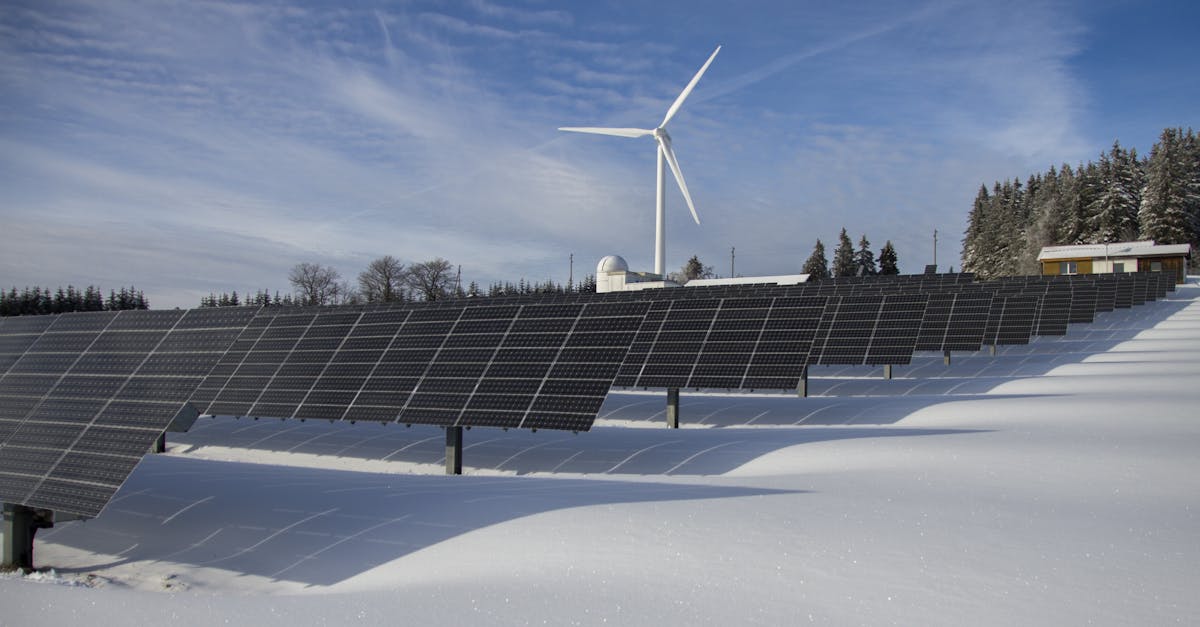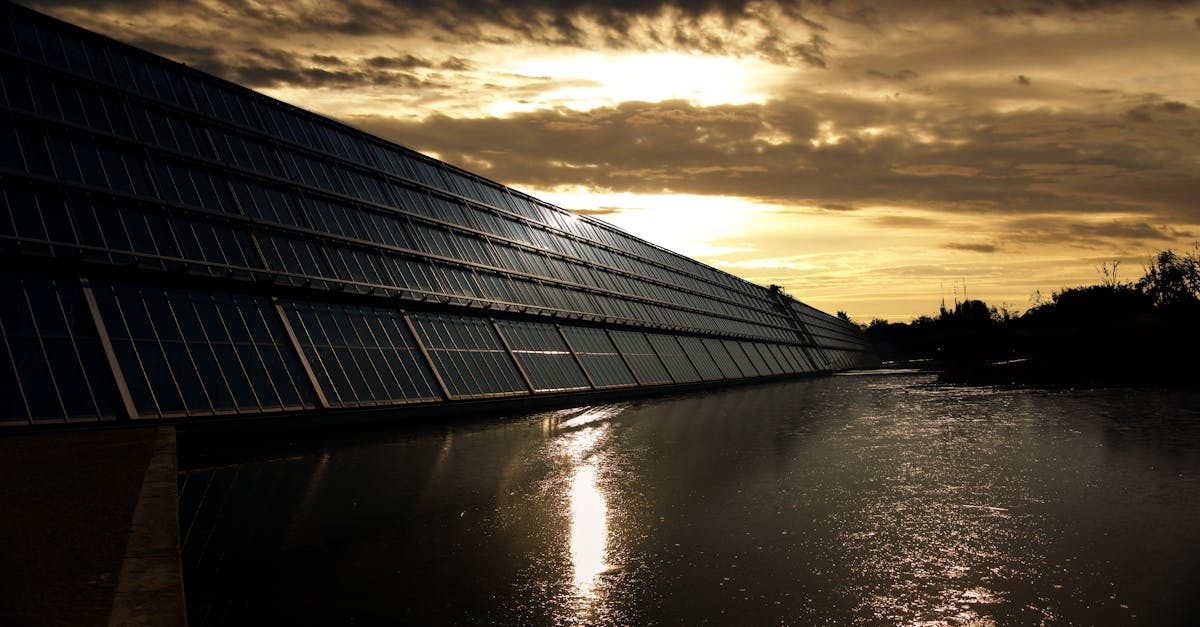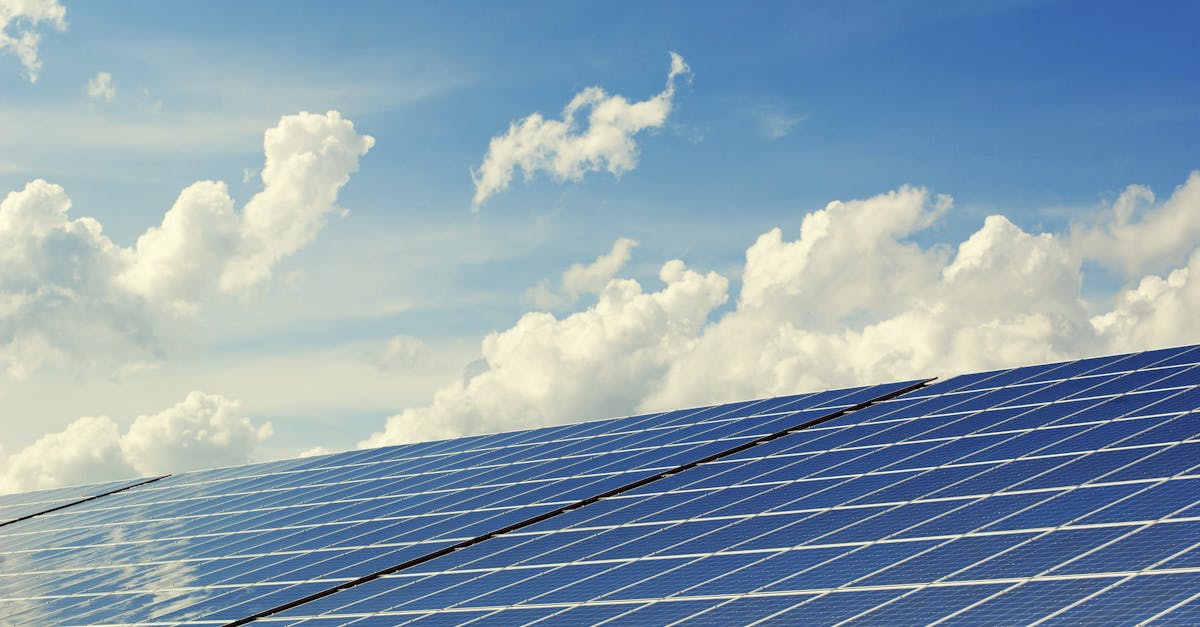
Table Of Contents
Comparing Solar Panels to Other Energy Solutions
Solar Panel Installation stands out as a viable solution in the face of rising energy costs and environmental concerns. Unlike traditional fossil fuels, which are subject to fluctuating prices and can harm the environment, solar energy harnesses a renewable resource that can significantly reduce electricity bills. This shift not only offers savings for homeowners but also contributes to a more sustainable future by lowering carbon emissions and reliance on finite energy sources.
When comparing solar panels to other energy options, their longevity becomes a key advantage. Many conventional energy sources require constant maintenance and ongoing costs, whereas solar panels typically have long service lives and relatively low maintenance needs. With technological advancements making solar solutions more efficient and accessible, families and businesses are increasingly recognising the benefits of Solar Panel Installation as a forward-thinking choice for energy independence.
Advantages Over Traditional Energy Sources
Solar panel installation offers numerous advantages compared to traditional energy sources. One of the most significant benefits is the reduction in monthly energy bills. By harnessing solar energy, households can generate their own electricity, leading to substantial savings over time. This not only alleviates financial pressures but also increases energy independence, enabling consumers to rely less on utility companies and fluctuating energy prices.
Additionally, solar energy is renewable and environmentally friendly. It produces no harmful emissions during operation, contributing to a reduction in the carbon footprint. As concerns about climate change intensify, switching to solar energy represents a proactive step towards sustainability. The long lifespan of solar panels further ensures that the initial investment pays off, making it a viable alternative to conventional fossil fuel sources.
Common Misconceptions About Solar Energy
Many people harbour misconceptions about solar energy that can deter them from considering solar panel installation. One common myth is that solar panels only work in sunny climates, leading to the belief that they are ineffective in the UK’s often cloudy weather. In reality, solar panels can still generate electricity on overcast days. The technology has advanced significantly, enabling systems to capture diffuse sunlight, which means they can be efficient even during less-than-ideal conditions.
Another frequent misconception is the notion that solar panel installation is prohibitively expensive. While initial costs can seem high, numerous financial incentives, such as grants and feed-in tariffs, can offset these expenses. Furthermore, the long-term savings on energy bills often make solar installations a financially sound investment. Homeowners can ultimately see a return on investment through reduced electricity costs while contributing positively to the environment.
Debunking Myths Surrounding Solar Panels
Many people hold misconceptions about solar panels, which can deter them from considering Solar Panel Installation as a viable option. One common myth is that solar energy can only be harnessed in sunny climates. In reality, solar panels can generate electricity even on overcast days. Modern technology allows them to capture diffuse sunlight, making them efficient across various weather conditions. This means households in regions with less consistent sunshine can still benefit from solar energy.
Another prevalent myth is the belief that solar panels require excessive maintenance. In actuality, solar panel systems are designed to be low-maintenance and durable. Regular cleaning and occasional inspections are typically all that is needed to keep them functioning optimally. Additionally, many manufacturers offer warranties that further alleviate concerns regarding installation longevity. Understanding these facts can help individuals make informed choices about adopting solar energy solutions.
Choosing the Right Solar Provider
Selecting the right solar provider is crucial for a successful solar panel installation. Start by researching local companies and assessing their customer reviews. It's beneficial to source multiple quotes to understand the price range and what different providers offer. Look for industry certifications and check if they are members of relevant trade associations. This adds a layer of credibility and ensures that they meet specific standards of quality and service.
In addition to credentials, consider the provider's warranty offerings and after-sales support. A reliable installer should stand behind their work with substantial warranties for both the solar panels and the installation services. This assurance can protect your investment and provide peace of mind. Discuss the anticipated timeline for solar panel installation and any maintenance they recommend post-installation. This information will help you gauge their professionalism and commitment to customer satisfaction.
Tips for Selecting a Reputable Installer
When selecting a reputable installer for solar panel installation, it is essential to consider their experience and qualifications. Look for companies that are accredited by recognised bodies, as this ensures they meet industry standards. Checking customer reviews and testimonials can provide valuable insight into the quality of their work. A solid track record of successful installations will often reflect a commitment to customer satisfaction.
Additionally, obtaining several quotes can help you assess the market and understand the pricing structure. Transparent communication from the installer regarding the solar panel installation process is crucial. They should be willing to answer questions and provide detailed information about the products they offer. A good installer will also assist in navigating any local regulations or incentives that may apply to your solar project.
FAQS
What are Martin Lewis's views on solar panels?
Martin Lewis advocates for solar panels as a viable energy solution, highlighting their long-term financial benefits and environmental impact.
How do solar panels compare to other energy solutions according to Martin Lewis?
Martin Lewis compares solar panels favourably against traditional energy sources, emphasizing their potential for cost savings and energy independence.
What advantages of solar panels does Martin Lewis mention?
He points out advantages such as reduced energy bills, increased property value, and a lower carbon footprint as key benefits of installing solar panels.
Are there any common misconceptions about solar energy that Martin Lewis addresses?
Yes, Martin Lewis debunks myths such as solar panels being too expensive and ineffective in cloudy weather, stressing that they can be a worthwhile investment in the UK.
What tips does Martin Lewis provide for choosing a solar provider?
He recommends doing thorough research, reading reviews, and ensuring that the installer is certified and has a good track record in the industry.

